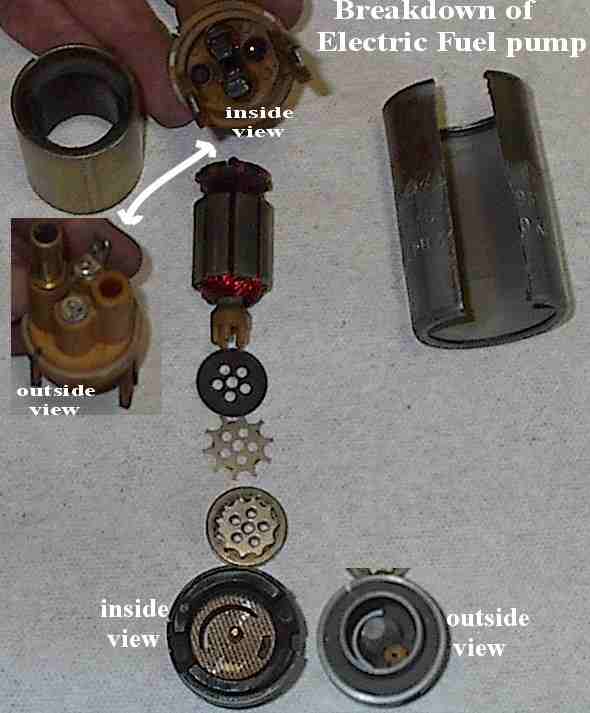At one time during discussions about fuel additives it was brought up as how many different fuel additives might affect a fuel pump... Well, I went and did a little research discussing with some top mechanics some of the problems they have seen.
Most have stated they have not seen the problem with the sock, now that isn't to say it doesn't happen just not been a problem down here.
What they did state was how if they do a fuel treatment that is extremely hard on the system which if they fail to cut off the return flow and this stuff gets back into the tank they see a fuel pump failure following within 2 wks of this. The problem some come up with is that the windings are shorting out due to the insulation being ate away by the additives which is like a very thin laqure insulating the wire where it is wrapped around the armature. Since I had no idea how this system actually worked, I got an old pump from one of the guys and did what I do best... Tore it apart!
Here is the guts of a basic electric fuel tank fuel pump. I also noticed that the fuel does in fact flow through the windings around the brushes and so forth which I would have thought it would have been isolated from that with a direct line through the unit which appeared not to be the case.

Most have stated they have not seen the problem with the sock, now that isn't to say it doesn't happen just not been a problem down here.
What they did state was how if they do a fuel treatment that is extremely hard on the system which if they fail to cut off the return flow and this stuff gets back into the tank they see a fuel pump failure following within 2 wks of this. The problem some come up with is that the windings are shorting out due to the insulation being ate away by the additives which is like a very thin laqure insulating the wire where it is wrapped around the armature. Since I had no idea how this system actually worked, I got an old pump from one of the guys and did what I do best... Tore it apart!
Here is the guts of a basic electric fuel tank fuel pump. I also noticed that the fuel does in fact flow through the windings around the brushes and so forth which I would have thought it would have been isolated from that with a direct line through the unit which appeared not to be the case.

